15 Best Plant-Based Milks To Replace Dairy
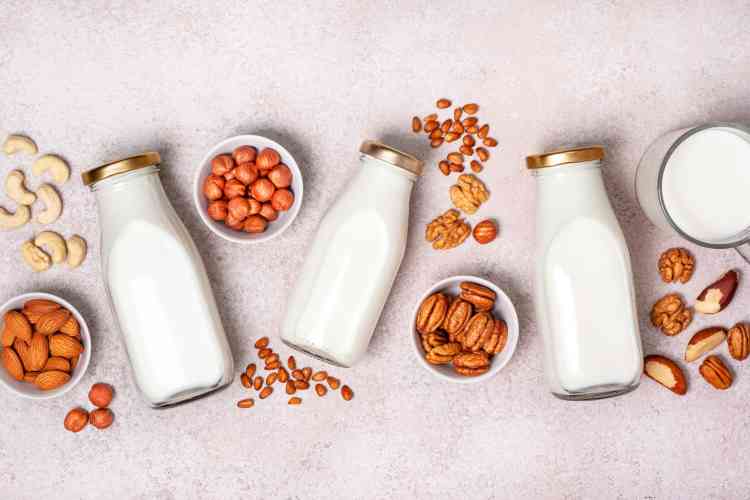
By now, everyone has tried at least one plant-based milk. The alternative milk product boom is thought to have started with the rise in lactose intolerance.
From there, the popularity of plant-based milk grew as consumers looked for more humane and sustainable options. Today, there is more space dedicated to plant milk on the grocery shelves than ever before.
If you’re new to this alternative kind of milk, you may have some questions, like “What is plant-based milk?” “Which ones taste the best?” and “Are plant-based milks healthier than real milk?”
Being an educated consumer is important if you’re going to switch to plant-based milk because, just as with the plant-based meat industry, not all products are what they seem.
Having a little knowledge upfront will help you pick the right product whether you’re a chef, a baker or just a milk lover.
- What is Plant-Based Milk?
- The 15 Best Plant Milks To Try
- How To Make Plant-Based Milk at Home
- What Is the Healthiest Plant-Based Milk?
- Are Plant-Based Milks Better for the Environment?
What Is Plant-Based Milk?
Plant-based milk is a product that looks like regular milk but comes from plants instead of from animals.
Typically made from either nuts or grains, plant-based milks are popular with those who want vegan alternatives to cow milk as well as those concerned about food sustainability.
Consumers who are lactose intolerant are increasingly opting for plant-based milks over lactose-free cow's milk as well.
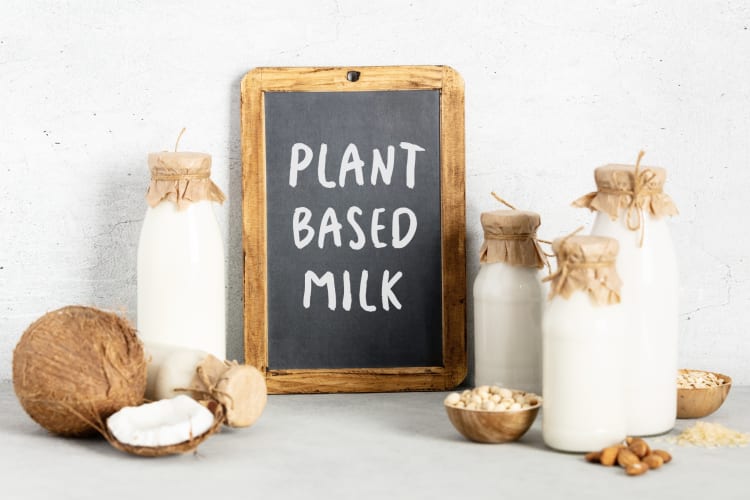
What Is the Best Plant-Based Milk?
Which plant-based milk is the best? If you’ve never tried plant milk, where do you start? Many of us grew up in a household where a cold glass of cow’s milk was a requirement with your dinner, so making the transition to plant-based milks can be a bit of an acquired taste.
Ultimately, when it comes to the best plant-based milk, it’s a matter of personal preference.
Almond or Oat Milk
Almond milk and oat milk are generally the most popular plant-based milks. Almond milk has a sharper, sweeter flavor compared to regular cow’s milk, and oat milk is more, well, oaty.
Both of these products are good overall options if you want to incorporate plant-based milk into your routine because they can be easily swapped with traditional milk in most recipes.
They can be consumed cold or steamed to prepare your morning latte. Finding either oat milk or almond milk is as easy as grabbing a gallon of regular milk.
Other Plant-Based Milks
If you don’t like either of those, keep testing the many other types of plant milk available; you’re sure to find one you love! Some also find that different kinds work for different uses. For example, you may prefer oat milk with tea but almond or soy milk with coffee.
Cooking With Plant-Based Milks
If you want a little more guidance on which plant milk to try and how to use them, consider looking at cooking classes near you or online cooking classes that focus on the best ways to utilize these products.
Vegan cookbooks are also a great place to learn about ways to incorporate plant milks and other meat and dairy alternatives into your diet.
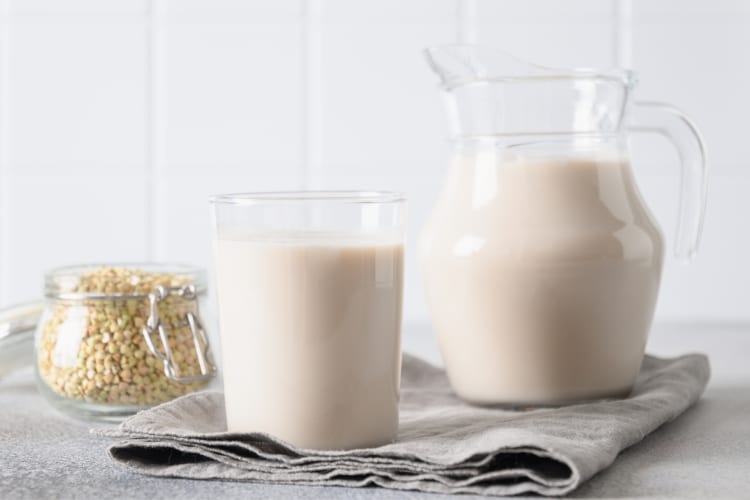
The 15 Best Plant Milks To Try
1. Soy Milk
Soy milk was the OG plant-based milk alternative. It has a mild taste and is an easy substitute for regular milk in recipes. Soy also has the highest amount of protein among plant milks, being nearly equal to cow milk. Stick to the unsweetened varieties for the healthiest options.
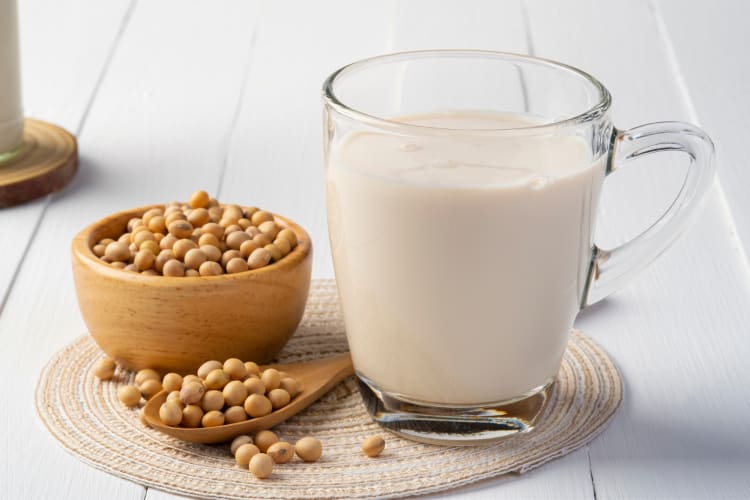
2. Oat Milk
The joy of an oat milk latte is a thing of beauty. Oat milk is one of the simplest plant-based milks and has a very neutral flavor. It can be steamed, though the flavor becomes most noticeably oaty if you scald it.
The best thing about oat milk is that it mimics cow’s milk in terms of creamy texture. If you’re looking for vegan breakfast ideas, starting with an oat milk latte is step one. When shopping for oat milk, be aware that some products have unnecessary fillers.
Opt for the healthiest oat milk by checking labels and choosing a fortified product with mainly oats and water. You could also make oat milk easily at home, but this will not be fortified with vitamins and minerals.
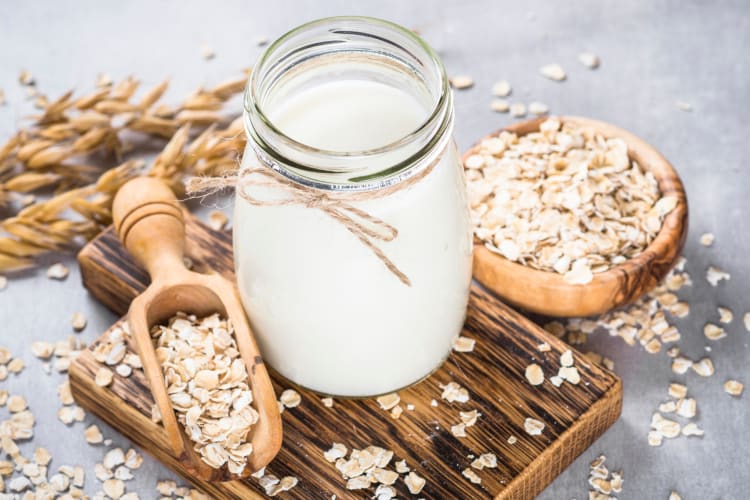
3. Rice Milk
Rice milk is a good plant-based milk option for people with sensitivities or allergies to dairy, soy or nuts. It’s considered to be very hypoallergenic compared to other plant-based milk products.
Rice milk is mild in flavor, making it easy to use as an alternative to dairy milk, but it has a high glycemic index, so it’s not the best choice for diabetics.
In terms of environmental impact, rice milk is also less ideal because of the water required to produce it and the amount of methane gas that production creates. However, these values are still lower than the water use and methane emissions associated with cow milk production.
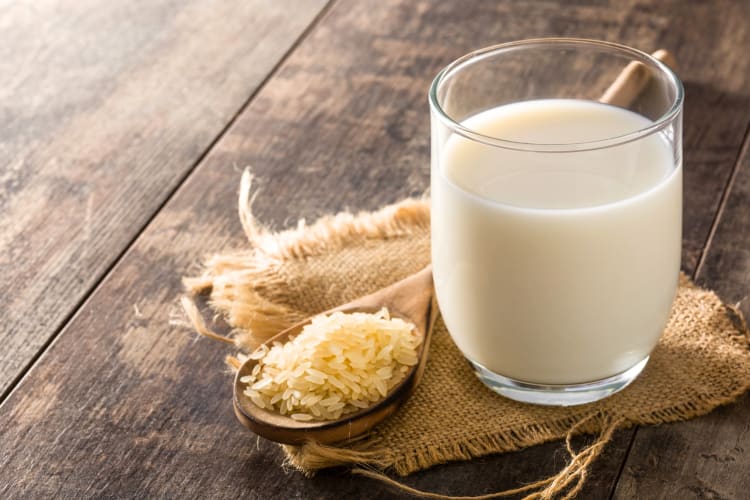
4. Hemp Milk
If environmental impact is a factor in choosing your plant-based milk, hemp milk, which is made from hemp seeds, could be of interest. Hemp has very low-carbon emissions and is generally considered to be a very sustainable agricultural product.
Taste-wise, hemp milk is probably not the best place to start if you’re trying plant-based milk for the first time. Its slightly bitter taste can be a turn-off for the uninitiated.
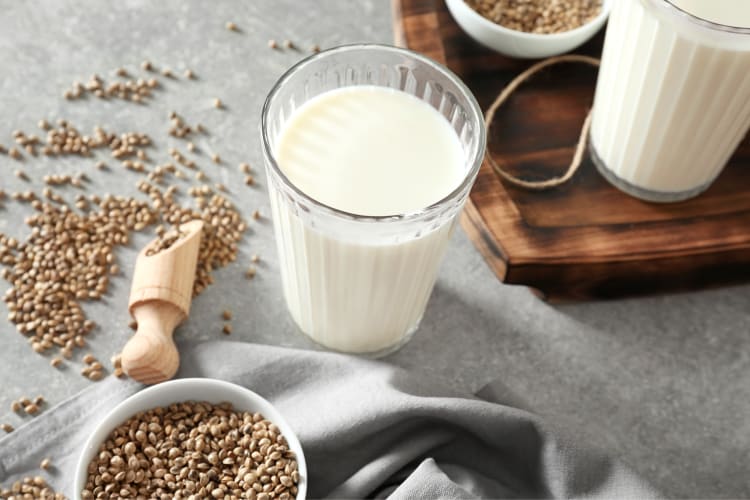
5. Coconut Milk
You may not think of coconut milk as a plant-based milk alternative. It’s the product you pick up when you’re making curry or Thai food at home.
But coconut milk has also been adapted for daily drinking and is sold in cartons near other plant milk products. The biggest detractor to coconut milk is that it has an obvious coconut flavor, so enjoying it is a matter of personal taste preference.
However, when used as a milk or cream alternative in cooking, most other flavors overtake it, meaning it can be just as good (and not coconutty) in creamy garlic pasta as it is in red curry.
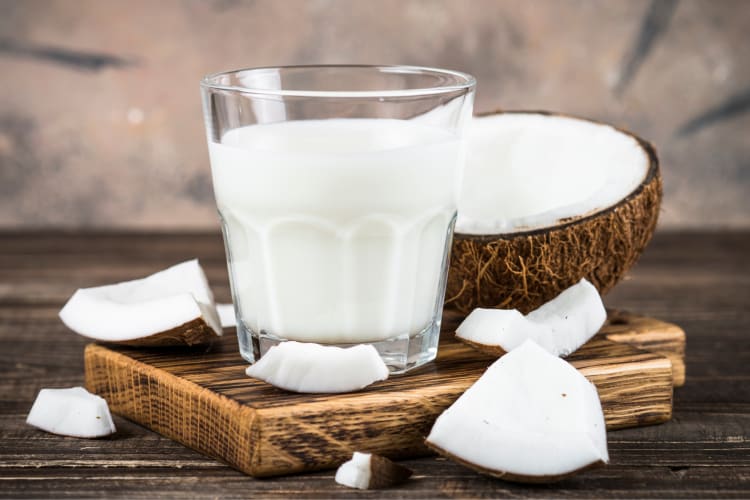
6. Almond Milk
It’s number six on this list, but for many people, almond milk is number one. Almond milk’s popularity grew quickly, especially with people who never really liked regular milk.
Its nutty sweetness makes it an easier flavor to enjoy right from the glass compared to some of the other plant-based milk options. For that reason, almond milk enjoys a large share of the plant-based milk market.
The best almond milk (often that with no added sugar) has a low calorie content compared to cow or soy milk (60 calories per serving vs. 149 in cow milk and 90 to 100 in soy).
The downside to almond milk is that it’s one of the least environmentally friendly options because it requires a high amount of water to produce. However, it still requires less fresh water than cow's milk.
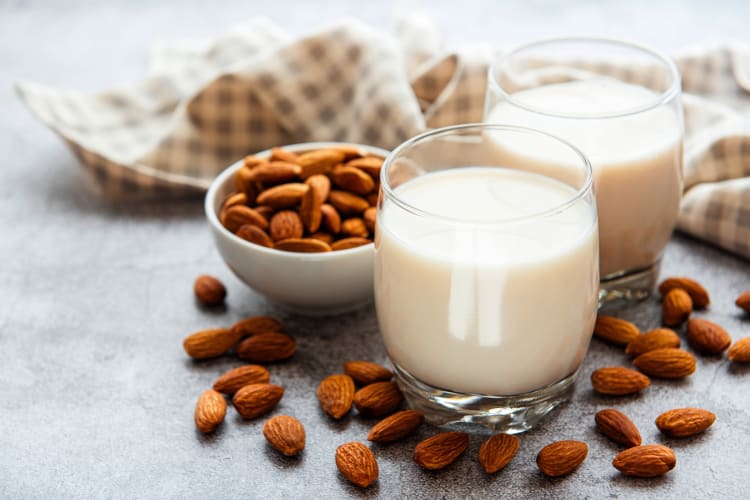
7. Hazelnut Milk
Almond milk lovers may want to take the leap to hazelnut milk (if you can find it). This healthy nut is best known for making a delectable dessert spread, so naturally, that sweetness translates to its milk.
Hazelnut milk is not widely available in stores, but it’s easy to make your own at home by soaking raw hazelnuts and then blending and straining them.
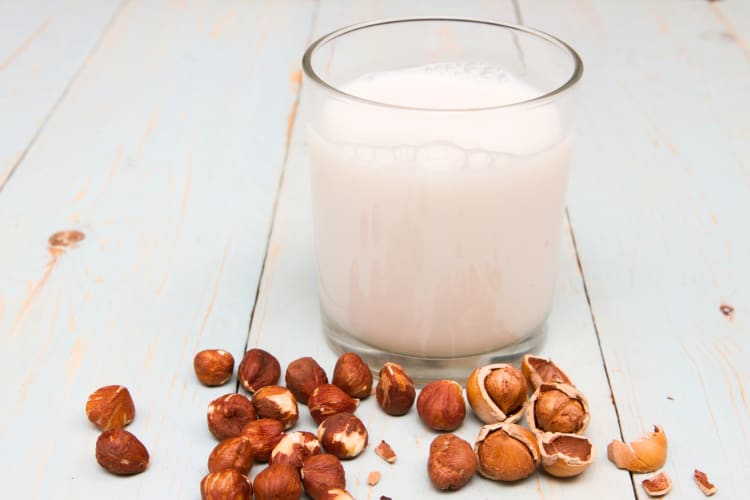
8. Potato Milk
Another relative newcomer to the plant-based milk scene is potato milk. The jury is still out on how well this product will do in the commercial market.
Manufacturers are attracted to the ease with which potatoes can be grown, but the nutritional content of potato milk requires that it be fortified to stack up to other plant milk products.
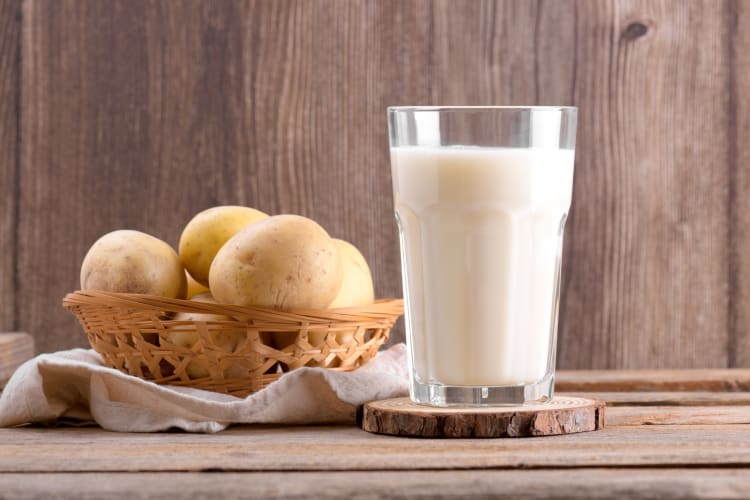
9. Cashew Milk
Heart-healthy cashew milk is probably the most underrated plant-based milk option. Nutty and creamy but with only a subtle sweetness, nut milk fans may actually prefer this to almond milk.
The rich and creamy texture of cashew milk tastes like a higher-calorie plant milk, but it’s actually one of the lowest-calorie options at just 25 calories per serving (if unsweetened).
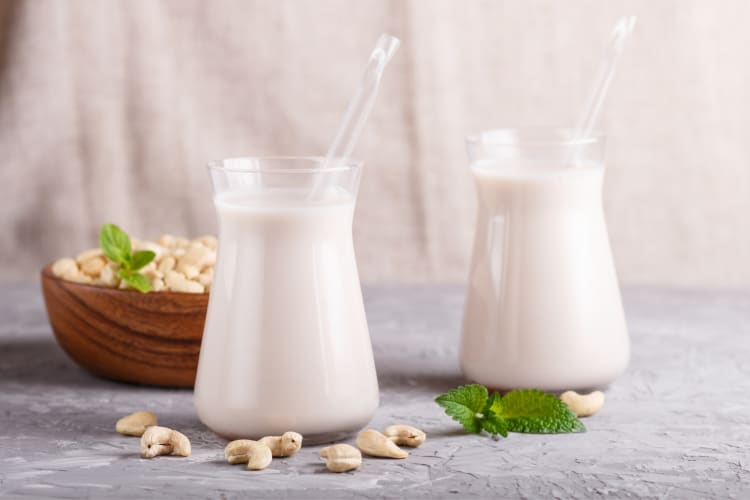
10. Pea Milk
One of the newest products to hit the plant-based milk shelf is pea milk. A well-known brand producing this unique milk product is Ripple. This brand of pea milk’s claim to fame is the high protein content, which clocks in slightly higher than a similar serving of 2% cow’s milk.
This product and many other pea milks are made from yellow peas and require minimal water or processing, making pea milk a good, sustainable choice.
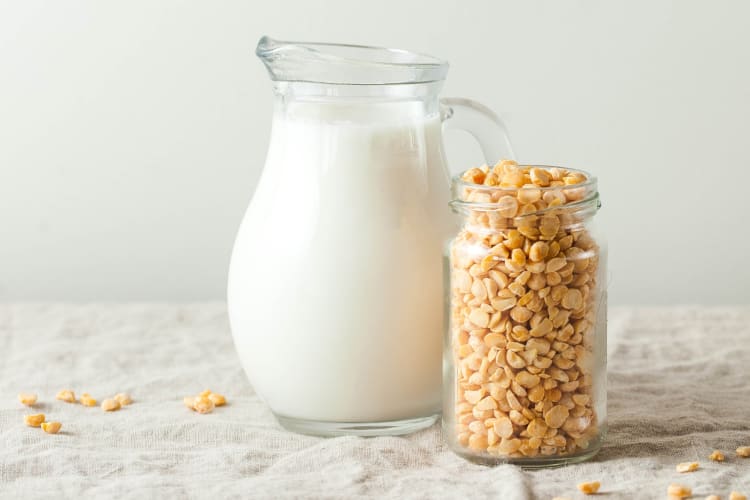
11. Pistachio Milk
If you already love pistachios, you might as well try pouring yourself a glass of pistachio milk.
Latte snobs will definitely want to give this plant-based milk a whirl because it foams like a champ and gives a distinctive pistachio stamp to your favorite morning mug.
This type of nut-based milk also uses a lot less water than the more common almond milk.
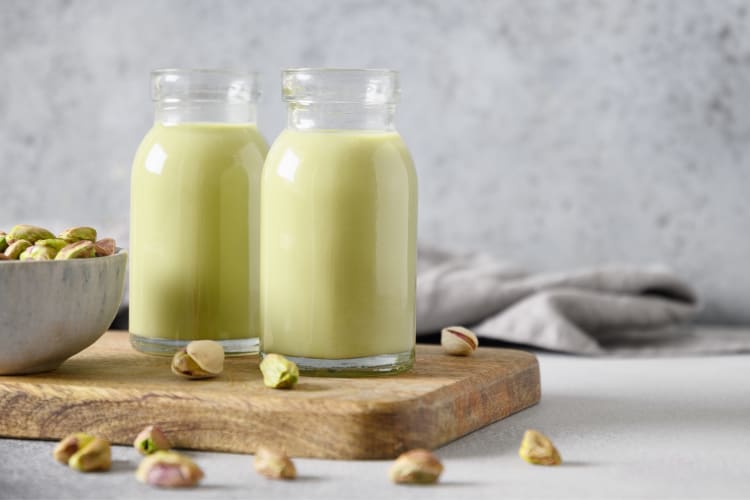
12. Flax Milk
Vegans have known for years that mixing flaxseed and a little water creates a creamy substance that can be used as an egg substitute. But did you know flaxseed can also be blended into a plant-based milk?
Flax milk is very low in calories but extremely high in omega-3s. This is also the best plant milk for the keto diet because it has the lowest amount of carbs of all the plant milks.
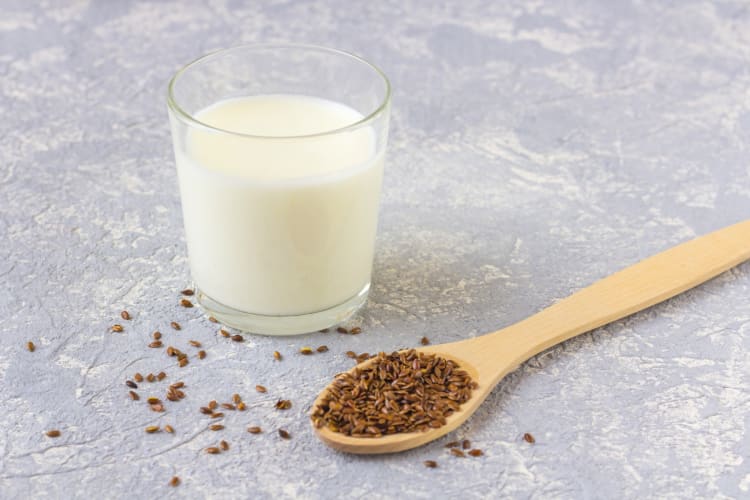
13. Banana Milk
The kid in everyone can’t help but reach for this plant-based milk! It gives the promise of nostalgic joy that comes with the last sip of morning cereal milk.
Commercial brands sometimes blend in oats to help the texture and stability of banana milk, but you can make your own at home by just blending a ripe banana with water and a tiny pinch of salt.
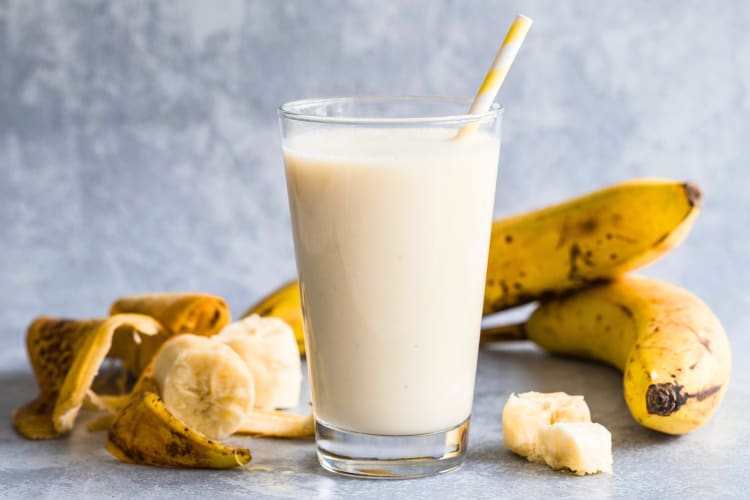
14. Macadamia Milk
Move over, almond and hazelnut, macadamia just made an entrance. This heart-healthy option is full of monounsaturated fats, plus it’s low in carbs. Macadamia milk is often found on the shelves with other unrefrigerated plant-based milks like flax or cashew milk.
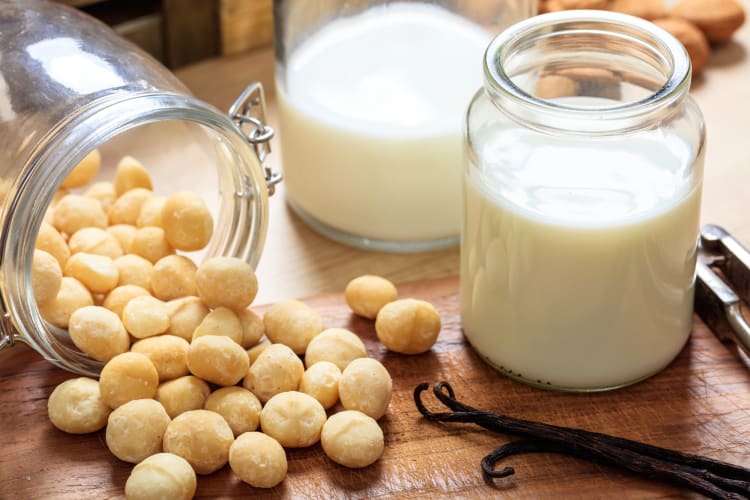
15. Walnut Milk
Walnuts are widely considered to be one of the healthiest nuts, and most of us have a bag in our pantry. Give walnut milk a try if you want to experiment with making plant-based milks at home.
Notably, the glass will be packed with omega-3 ALA. Just remember that you will be lacking a few nutrients that are fortified in the store-bought products.
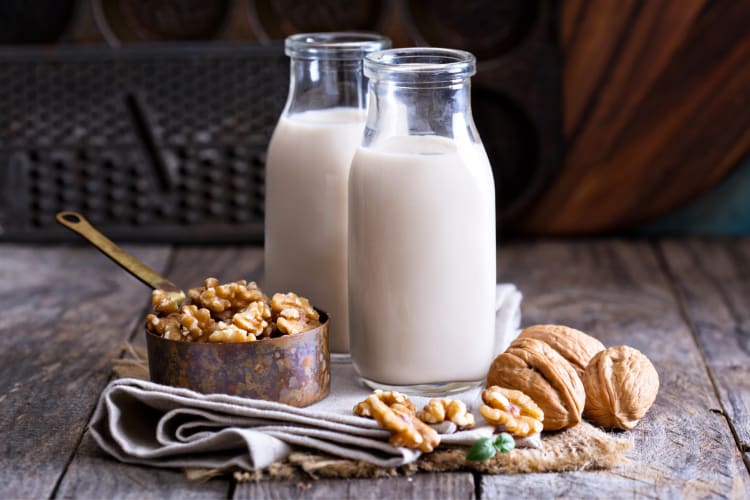
How To Make Plant-Based Milk at Home
Don’t want to commit to a full carton of plant-based milk? As nut milks (and many other types of plant-based milk) are very easy to make, try whipping up a few different versions at home to find your favorite.
Simply follow these instructions:
- Soak the nuts you choose in room temperature water for at least 30 minutes, ideally overnight.
- Process the nuts with water in a blender until smooth.
- After blending, strain through a cloth for an optimal texture and consistency.
You can make rice milk (using cooked rice), oat milk, soy milk and many others at home just as easily.
Again, remember that these won’t be fortified like most plant milks available in the store. However, it isn’t overly difficult to add additional foods to your daily diet that make up for things like protein and calcium that you miss out on a little when making plant milk at home.
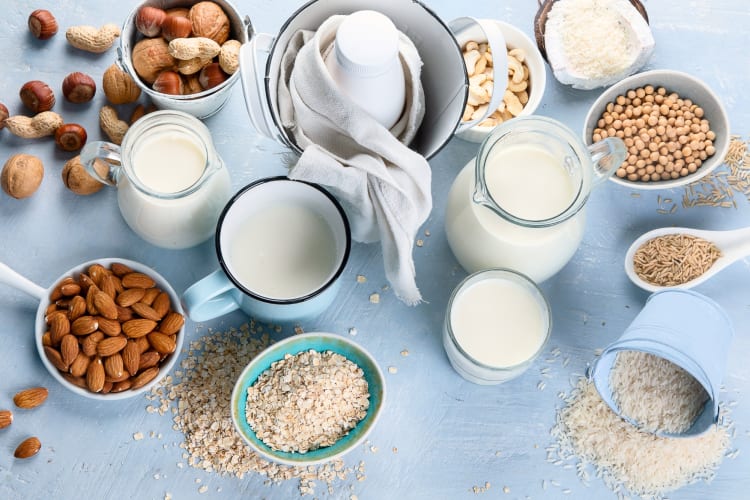
What Is the Healthiest Plant-Based Milk?
It’s easy to assume that just because milk is made from plants, it’s healthy. Plant-based milks can be a healthy part of your diet, but as with anything these days, be sure to read your labels.
However, plant-based milks that are manufactured for retail distribution can be full of fillers that help thicken them, as well as sugars to improve flavor. If you’re not careful, the product you thought was a staple part of a healthy diet might contain as much sugar as canned soda
If this is a concern, always read ingredient labels and opt for unsweetened versions when buying at the store. You can also make plant milk at home that won’t include added sugar or fillers.
You must note that homemade plant milk won't be fortified with nutrients such as calcium and B12. Many plant-based milks from stores are enriched with vitamins and minerals to match the nutritional content of cow's milk.
Nutritional Comparisons With Cow’s Milk
In terms of nutritional comparisons, a single serving of cow’s milk has about 150 calories and 13 grams of protein. You’ll also get several vitamins and minerals from cow milk. However, the fat in cow milk is mostly saturated.
Plant milk, on the other hand, is often lower in saturated fat than cow milk. Plant-based milks are also typically fortified with vitamins and minerals, making them just as healthy, if not more nutritious, than cow’s milk.
For example, an average 250 milliliter glass of unsweetened, fortified soy milk has 90 calories and 8 to 10 grams of protein, plus around 20% of your required daily calcium intake and many other important vitamins and minerals.
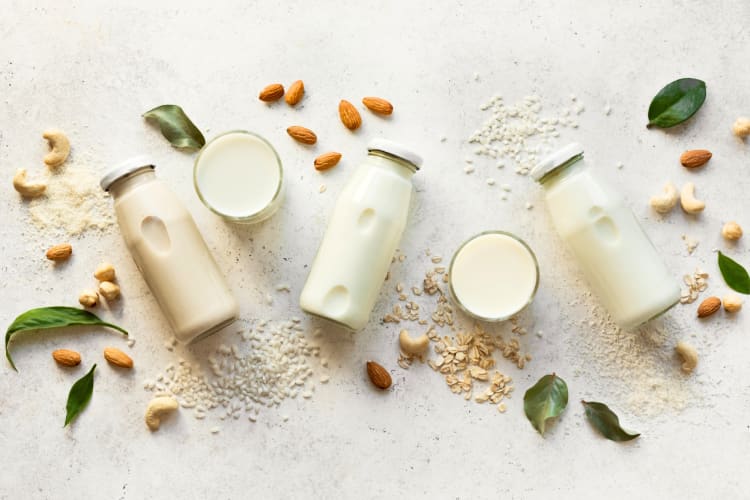
Are Plant-Based Milks Better for the Environment?
Plant-based milks are better for the environment than cow milk based on multiple peer-reviewed studies. When looking at the three environmental components of food production — total land use, freshwater use and greenhouse gas emissions — Our World in Data via Poore and Nemecek (2018) shows that plant milks have lower values for all three compared to cow's milk. Eutrophication (a type of water pollution) is also lower with plant milk.
If considering environmental impact, you may additionally be concerned about deforestation related to the production of soy. However, over three-quarters of soy grown and harvested is for livestock feed, with only about 7% for direct human consumption (which includes the soy used for soy milk).
Even if everyone switched to a plant-based diet, likely increasing demand for soy for direct human consumption, the total global demand for soy would drastically decrease, thus eliminating major deforestation concerns.
In fact, soy and oat are often considered the two most environmentally friendly milks compared to animal milks and all other plant-based milks. Most soy for human consumption is also non-GMO, and finding organic soy, including organic soy milk, isn’t overly challenging.
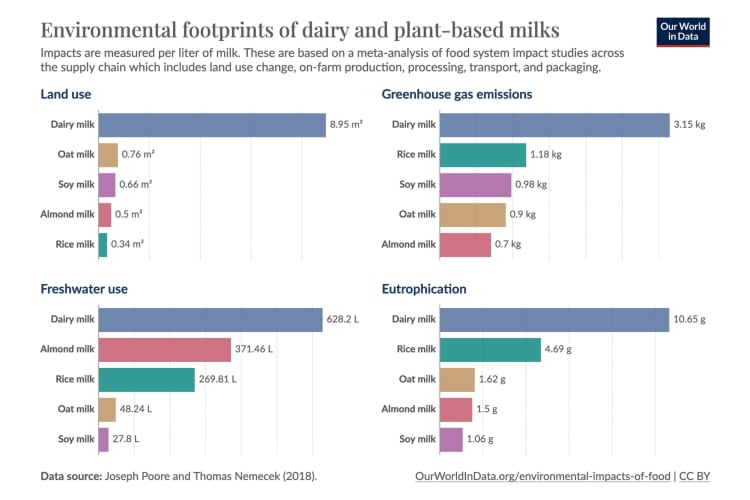
Who knew there were so many plant-based milk alternatives and that they were so easy to make? Branching out from dairy milk is not only a treat for the taste buds, but it’s also better for the environment.
While a hot chocolate chip cookie may still taste best with a cold glass of dairy milk, your morning latte is dying for a plant-based update.
For even more ways to explore your favorite foods, check out other experiences happening on Cozymeal.
